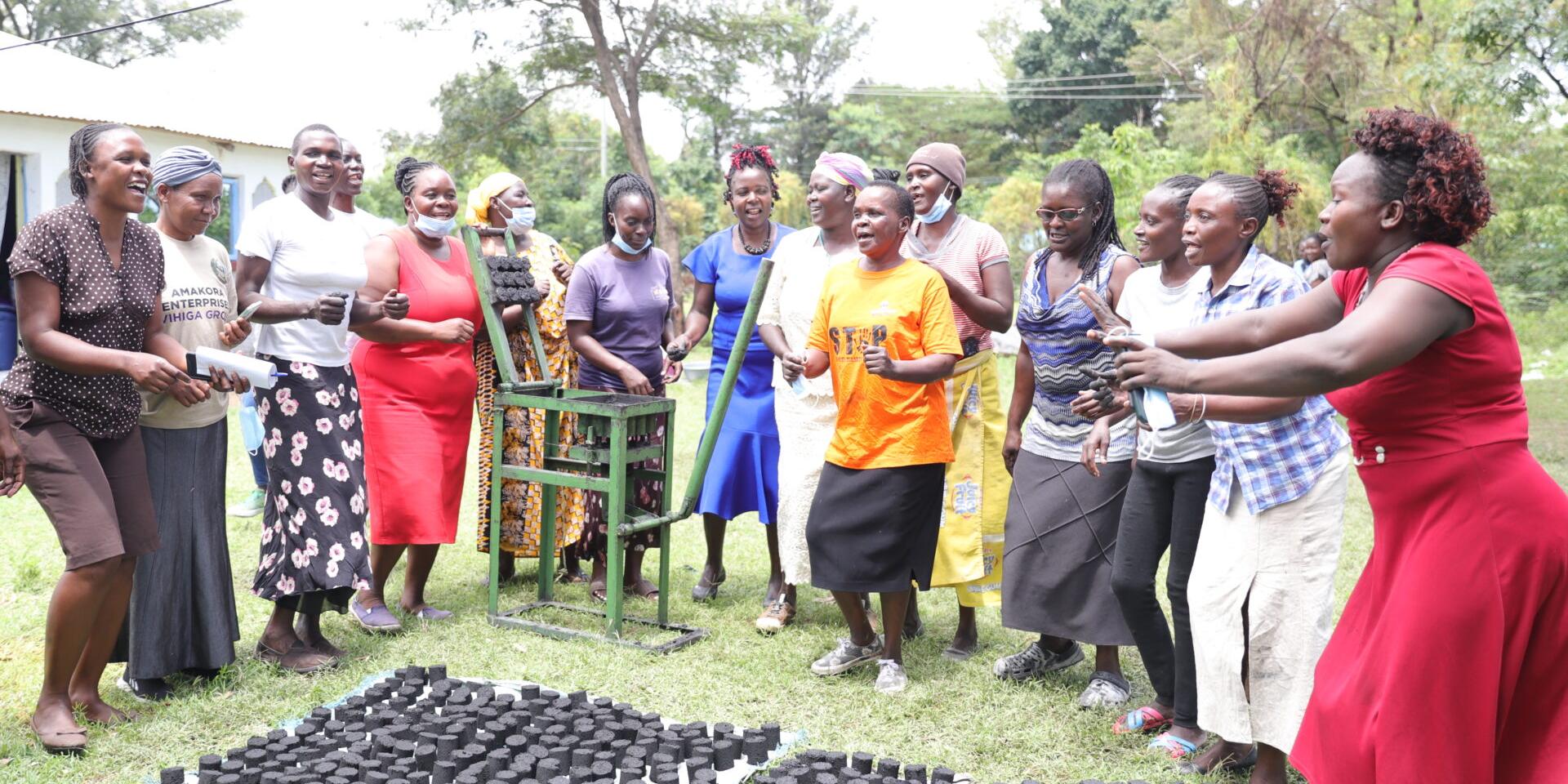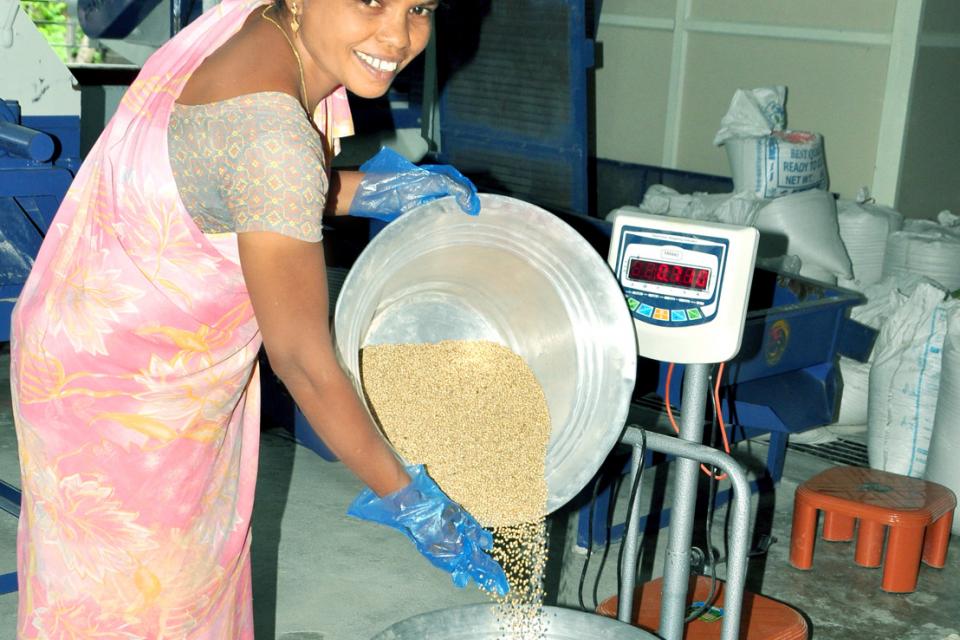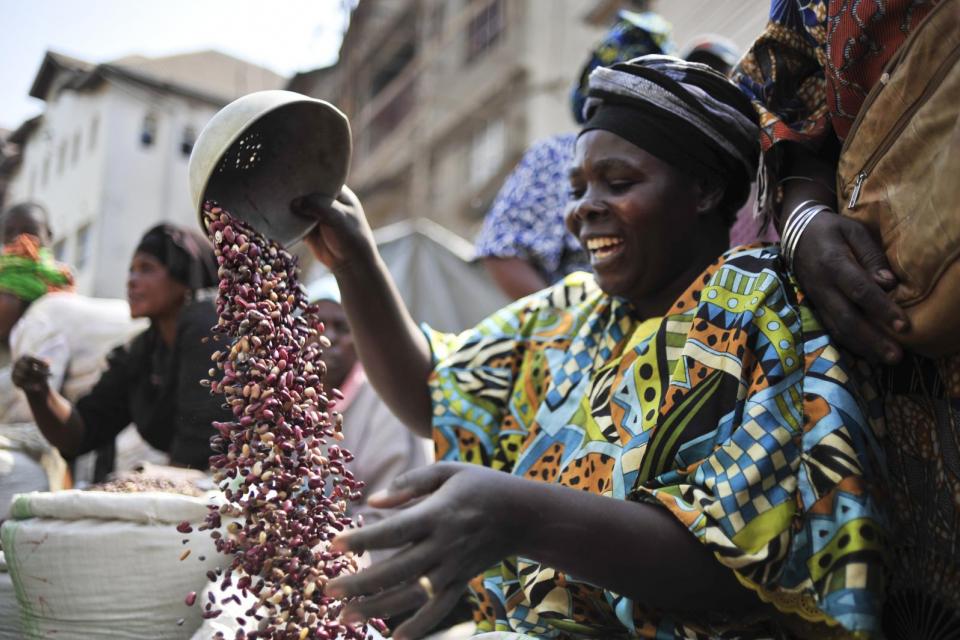From informal to formal: Empowering women in circular bioeconomy business in Kenya

Like many women in the low-income neighborhood of Manyatta in Kenya’s Kisumu County, Caroline Oulouch began making and selling fuel briquettes to improve the lives of her and her family. She used to make the briquettes manually, and gathered the needed raw material (charcoal dust, clay and water) mostly on her own. She made them with her one good hand and sold them for a low price to customers who use the briquettes for cooking.
Because she made them without the technical knowledge or the machinery needed to compete in Kenya’s burgeoning briquette market, Oulouch’s briquettes did not command a high price. That changed when she teamed up with about 30 other women in her neighborhood to receive training from scientists from the International Water Management Institute (IWMI) to improve the quality of their briquettes, manually mechanize production, and achieve higher prices and lower costs through economies of scale.

